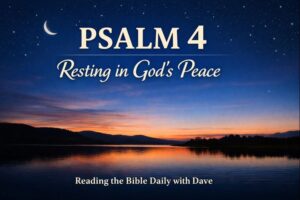⏱️ Estimated Reading Time: 5 min read
The belief that professing Christians should gather together as members of a local Church is waning in many sectors of Christianity sectors today. Some feel that faith shouldn’t be “institutionalized” and should be a private matter between individuals, not something to be experienced in community.
Here are six reasons why Christians should be members of a local church. This isn’t an exhaustive list, but these reasons give Christians a biblical framework to think through why they should be local Church members.
First, the Bible teaches that God distinguishes between His people and the world (Leviticus 13:46; Numbers 5:3; Deuteronomy 7:3). We, as a Body of believers, are set apart from the world to be a light unto the nations.
Second, Christ says that entering the Kingdom of God means being bound to the Church “on earth” (Matthew 16:16-19; 18:17-19). The New Testament refers to some people being inside the church and some people being outside the church (1st Corinthians 5:12-13). The church in Corinth consisted of a definite number of believers, such that Paul could speak of a punishment inflicted by the majority (2nd Corinthians 2:6). Not only does the New Testament talk about the reality of church membership, but its dozens of “one another” passages are written to local churches. The “one another” passages in the New Testament fill out our understanding of what church members should look like practically.
Biblical church membership is important because the Church presents God’s witness to Himself in the world and displays His glory. In the church’s membership, non-Christians should see in the lives of God’s changed people that God is holy and gracious and that His gospel is powerful for saving and transforming sinners.
Third, the Epistles were all written to local churches. A brief sampling of Paul’s epistles make this abundantly clear:
- 1st Corinthians 1:1-2, “To the church of God that is in Corinth, to those sanctified in Christ Jesus, called to be saints together with all those who in every place call upon the name of our Lord Jesus Christ, both their Lord and ours…”
- 2nd Corinthians 1:1-2, “Paul, an apostle of Christ Jesus by the will of God, and Timothy our brother, To the church of God that is at Corinth, with all the saints who are in the whole of Achaia.”
- Philippians 1:1-2, “Paul and Timothy, servants of Christ Jesus, To all the saints in Christ Jesus who are at Philippi, with the overseers and deacons.”
- Galatians 1:1-2, “Paul, an apostle—not from men nor through man, but through Jesus Christ and God the Father, who raised him from the dead— and all the brothers who are with me, To the churches of Galatia…”
- 1st Thessalonians 1:1-2, “Paul, Silvanus, and Timothy, to the church of the Thessalonians in God the Father and the Lord Jesus Christ: Grace to you and peace.”
Fourth, Christ saves Christians to live in community with other believers. Christ calls believers to local church membership, not just for our spiritual growth, but also for their spiritual gifts in the context of the local church.
Fifth, some people think meeting together with other Christians is not important because the early Church only gathered in small groups in Acts 2:42-48. The problem with this view is it ignores history. As the Church continued to grow, they gathered together in large gatherings. There were small group meetings, but there were also large gatherings. Regardless of if the local church meets in a building or a home, it doesn’t matter. The Church is comprised of people who have been regenerated by the work of the Spirit. The people of God are to gather to worship together in Spirit and Truth, hear the preached Word, fellowship, participate in communion, baptism (and more), and then scatter to spread the Great Commission in their families, neighborhoods, cities, and nations.
While many people have a problem with the Church, the Bible teaches that professing Christians are to be members of local churches. While local churches may have many issues, the Church itself is purchased by Christ and is, therefore, blameless. The members of the Church (the Body of Christ) are justified and yet sinners, meaning they are made right with God through the blood of Jesus, but still growing in Christ-like character and going forth in His name to share the gospel to the world around them.
Those who object the loudest to this kind of teaching think that they can be Christians and not be in the Church. From even from a cursory examination of the Scriptures, the lone-ranger view of being a Christian is not biblical. Christ saves Christians to live in community with other believers. Christ calls believers to membership in the local church for their own spiritual growth, and to use their spiritual gifts in the context of that group of believers.
Christ calls other Christians to live in community with one another for accountability and spiritual growth (growing in Christlikeness).
Lastly, Christ doesn’t save sinners, so they will live in isolation or be lone-rangers. Instead, He saves them so that they will be in community with one another—speaking the truth in love to one another, “one anothering” each other, and displaying His character and glory to a watching, unbelieving world.



